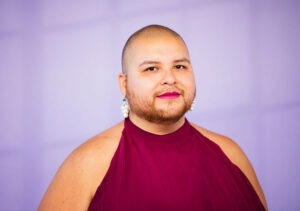November 12, 2015; Plain Dealer (Cleveland, OH)
NPQ has covered the multitude of issues facing veterans, and recently noted that part of the problem facing veterans is whether we’re instituting the right solutions to help them through their financial difficulties, health problems, and joblessness, many of which are connected. This may be one of those key solutions. The U.S. Department of Veteran Affairs opened the nation’s first transgender veterans’ health clinic at the Louis Stokes Cleveland VA Medical Center last week.
For now, the clinic will enroll 20 transgender veterans, aged 21 to 75. Dr. Megan McNamara, who has been working with transgender veterans for the past two years, will be the lead clinical physician.
Accord to McNamara, studies indicate that the number of transgender veterans seeking health services is five times that of the civilian population, illustrating a great need for such a clinic.
“The numbers are sort of all over the place, especially among the veteran population because it has never been safe to say (that you’re a transgender person) until now, with the military ban (on such admissions),” McNamara added.
There are believed to be around 15,000 active duty transgender personnel currently serving and around 100,000 transgender veterans. With some currently concealing their gender identity status while serving, many will be faced with similar difficulties coming back to civilian society and trying to find the right health care.
Sign up for our free newsletters
Subscribe to NPQ's newsletters to have our top stories delivered directly to your inbox.
By signing up, you agree to our privacy policy and terms of use, and to receive messages from NPQ and our partners.
The specialized care that a transgender individual may require further affirms the need for such services. For instance, should the individual want hormone therapy or exhibit specific mental health issues, it’s important the treating physician is informed and knowledgeable about transgender health.
Moreover, as seen in the case of Chelsea Manning, the army solider who was convicted of violating the Espionage Act back in 2013, the issue of transgender military personnel is particularly difficult. Manning faced significant pushback upon revealing she was transgender. (The issues transgender inmates face is similarly a topic that must be addressed.)
The clinic provides a safe space for individuals to find the services they need, without fear of prejudice or judgment. “I feel there are a lot of transgender patients in the veteran population who haven’t been able to find the care they need,” says McNamara. “I really want to be able to provide comprehensive, one-stop care for those patients in a welcoming environment…a place where they’re comfortable and accepted.” She hopes the effort will also branch off into support groups and organizations for the veterans.
Veterans are remarking on how the clinic fills a much-needed niche in the community. “Oftentimes if I’d go in the private sector, I’d run into problems with doctors who are not informed how to treat (transgender patients) or knowledgeable of transgender issues,” said Danielle Keller, an Air Force veteran.
“I think there’s a need,” Keller said. “If we could be the starting point and others would follow suit, that would be terrific.”—Shafaq Hasan













